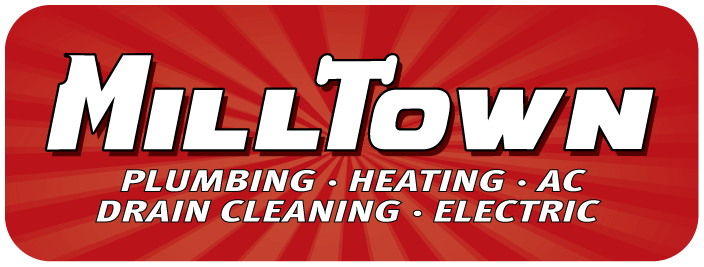How Does A Heat Pump Work?
- Air Conditioning
- Heating

In recent years, heat pumps have gained tremendous popularity in the world of heating and cooling. These versatile systems offer an energy-efficient solution to keep your home comfortable year-round. But have you ever wondered how does a heat pump work? In this comprehensive guide, we’ll dive into the inner workings of heat pumps, their components, heating and cooling cycles, types, benefits, and maintenance. Whether you’re considering installing one or just curious about how a heat pump works, read on to uncover the secrets behind this remarkable technology. MillTown has been providing professional heat pump services for local homeowners and business owners for years. Contact us today to learn more about our heat pump services!
What Is a Heat Pump?
A heat pump is an HVAC (Heating, Ventilation, and Air Conditioning) system that can both heat and cool spaces. It achieves this by transferring heat from one location to another, using a refrigeration cycle. In essence, it works similarly to a refrigerator, but in reverse. Instead of removing heat from the inside and expelling it outside, a heat pump can do the opposite, making it a highly efficient heating and cooling system.
Heat Pump Components
To understand how a heat pump works, let’s take a look at its key components:
- Evaporator Coil: Located inside your home, it absorbs heat from the indoor air.
- Compressor: This component increases the temperature and pressure of the refrigerant gas.
- Condenser Coil: Located outside your home, it releases heat into the outdoor air.
- Refrigerant: A special fluid that circulates through the system, transferring heat.
How Does a Heat Pump Work?
A heat pump operates through two main cycles: the heating cycle and the cooling cycle.
Heating Cycle:
- The evaporator coil absorbs heat from indoor air.
- The refrigerant, now in a gaseous state, is compressed by the compressor.
- The compressed gas releases heat as it passes through the condenser coil.
- The hot air generated is then distributed throughout your home via ducts or a blower.
Cooling Cycle:
- The refrigerant absorbs heat from indoor air in the evaporator coil.
- The compressor increases the pressure and temperature of the refrigerant.
- The heat is released outdoors via the condenser coil.
- The cooled air is circulated indoors to maintain a comfortable temperature.
What Are the Different Types of Heat Pumps?
Heat pumps come in all sorts of shapes and sizes. Depending on the type, the heat pump operates through different means. There are several types of heat pumps, including:
- Air Source Heat Pumps: Extract heat from the outdoor air.
- Ground Source Heat Pumps (Geothermal): Utilize the stable temperature of the earth to exchange heat.
- Ductless Mini-Split Heat Pumps: Provide zonal heating and cooling without ductwork.
Benefits
Heat pumps offer numerous advantages:
- Energy Efficiency: They can be up to three times more efficient than traditional heating and cooling systems.
- Year-Round Comfort: Provide both heating and cooling capabilities in one unit.
- Environmental Friendliness: Generate fewer greenhouse gas emissions.
- Cost Savings: Lower energy bills over time due to their efficiency.
- Longevity: With proper maintenance, they can last for many years.
Maintenance and Care
To ensure your heat pump operates at peak performance, regular maintenance is crucial. It is highly recommended that you schedule a professional heat pump service with a trusted HVAC technician like MillTown Plumbing. At MillTown, we deliver quick and reliable solutions for your heating systems. Before scheduling your service, here are some maintenance tasks you should consider:
- Cleaning or replacing filters regularly.
- Checking refrigerant levels.
- Cleaning outdoor coils.
- Scheduling professional inspections.
Modern Heating and Cooling Systems
Heat pumps are a remarkable technology that offers efficient and versatile heating and cooling solutions for your home. From understanding their components to grasping the heating and cooling cycles, we hope this guide has provided you with valuable insights into how a heat pump works. If you’re considering installing one, it’s essential to choose the right type and don’t forget to invest in routine maintenance to keep it running smoothly. Embrace the future of HVAC technology and enjoy year-round comfort with a heat pump. Contact us today for expert heat pump services!
Check out our Google Reviews!













